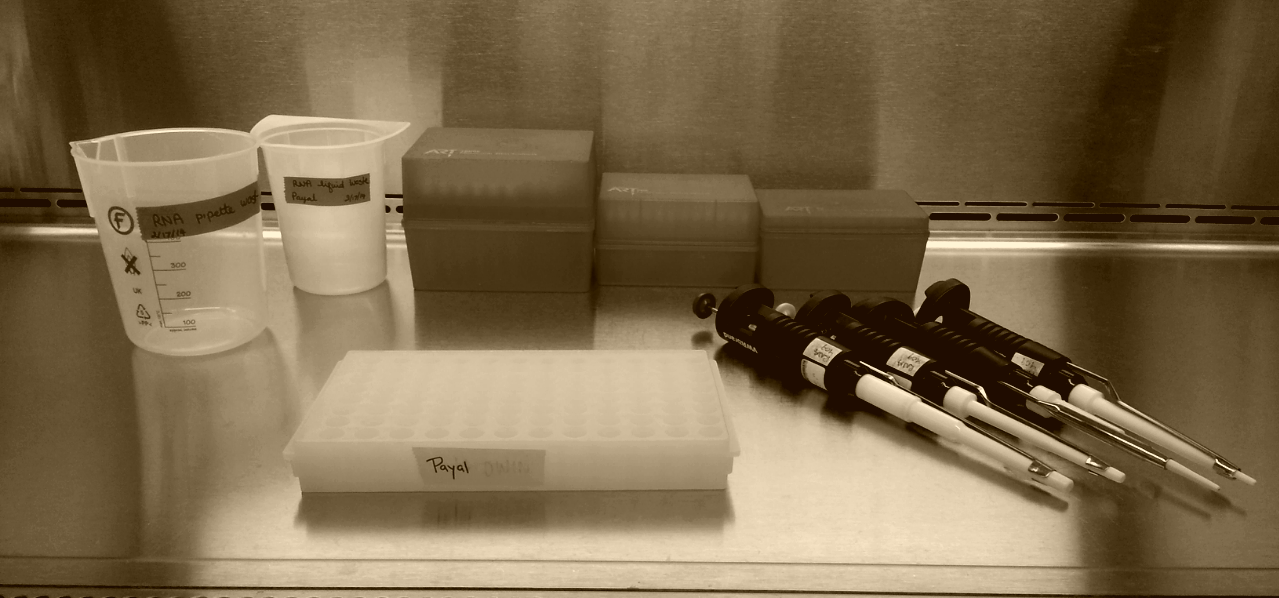It is almost the end of 2022, and I am officially done with all the bench work for the year. It has been an excruciatingly (well, seemingly) long year filled with gut-wrenching trials and trepidations in science. And as I look back to remember what I have accomplished, there have been many highs and some lows. The one thing that has been consistent throughout the year, is not taking science for granted. I have always leaned very heavily on science to find comfort and excitement, not always joy :). Looking back, I have endured a lot more physical and mental pain this year than any other. Here’s a summary of what it’s been like.
first, the highs..
memory, and protecting
Everything about memory (both immune and otherwise) is fascinating for me. The complexity with which it is procured, nurtured or coerced, enlisted and arsenalized (yep, I just made that word up) over and over ..throughout our life is truly unbelievable. I think about this concept constantly, seamlessly, tirelessly and joyously. And, I don’t just mean ..when thinking about work.. especially, off work..when I am talking to my loved ones, friends, colleagues, while watching tv, etc. So, that’s my thing. Memory. And, this year, I’ve had the privilege to think more freely about it.. than ever before. I was able to systematically gather (experimental) evidence on something I feel absolutely and intoxicatedly passionate about.. immune memory. This work has been a long time coming and will soon be available for the world to see.
Working w/ my team.
I’ve had the unbelievable honor and pleasure to work on some of the most complex aspects of science with my colleagues and mentor this year. Esp formative experience, was working on grants with my mentor. But, the process of articulating hypotheses and caveats to them, as rewarding and exciting, has instilled the realization that.. as scientists, we stand on some heavy shoulders (predecessors of discoveries) and no creative process occurs in vacuum, that thinking and writing are muscles that we develop all through our life and need to be exercised continuously.
collaborations
I part-took in a fantastic long-term highly collaborative project led by some incredible minds at NYU, Rutgers, Princeton and NIH..and it has been a formative experience for me as an immunologist. This has been exciting and grueling all the same. But, it has also made me a much better scientist and prepared me to think broadly about translational work, moving forward.
the obvious rewards
I’ve been incredibly lucky to have received a few significant research awards (ongoing F32, followed by Vilcek) that have felt like that protein bar and a glass of water..at the end of a 10mile run. There are too many reasons why this was no surprise, but many of how it just as well couldn’t have.
the γδ T cell club webinar series
I have no idea how we pulled it off, but we were able to materialize a 10-y long fantasy of finding a place to hang out with the greatest immunology minds across the globe, that specialize in the research of γδ T cells. This has been one of the most rewarding experiences of my career.
The lows..
disbelief can no longer be suspended
There are so many incredible things about science and academia. The open-ness, the permission to be wrong (rather rewarding the failures), the flexibility of being meticulous and haphazard in the same vein.. the blurring of hierarchy to work on something bigger. But, then there are the problems. The inability to adequately reward the intellectual and physical work in a monetary way. The fact that it takes so long to formalize a simple biological query into a testable hypothesis, nurture it with evidence that contextualizes the very fabric of that hypothesis and the uphill battle of getting the world to see it published. And, we’ve lost sight of the fact that.. ultimately, the bigger reason is for the world to learn from it and apply it to their own niches and continue the cycle forward.
so that’s really it for lows.. the cumbersome aspects of being a postdoc and the fact that this shall continue into the future of a faculty position, not so cheery.
Each year, this week, I kick myself for having set up an experiment that requires me to do serious bench work when I am losing steam and in dire need of a reset before the new year. I know this, because while looking through my phone .. I noticed that I have pictures of a semi-huge harvest (DM me if you do not know what this means) obvious from pictures of pathology, calculations, etc of this week, each year. It seems that I have always had experiment between Christmas and New years.. at least as far back as last 10 years, and likely even before.
And, as I wrap up the remnants of my last harvest of the year, I am filled with joy and exhaustion from the incredible year I’ve had and all the amazing things that will follow in 2023. All the incredible connections I’ve made ..both over Twitter/LinkedIN and IRL. All the wonderful conversations I’ve had about the fundamental/paradigms of immunology and so on and so forth. So, really, it isn’t “the last harvest”, but it is one more harvest, to instill the infantile joy of being an immunologist and having the privilege to challenge the paradigms and be granted failures and rise, over and over again.
/end of rant.


